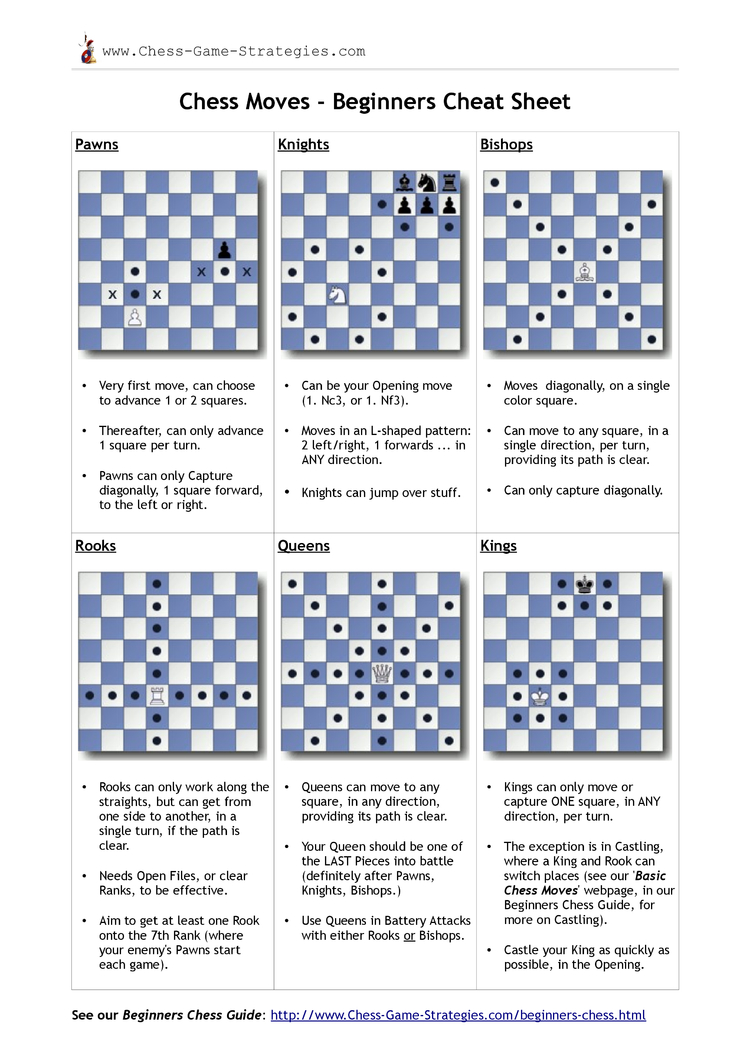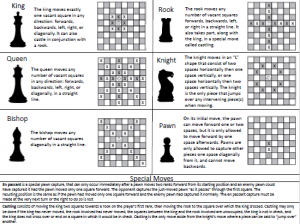Chess Moves of BigTime Winners

Chess is more than a game. It�s also an art. No matter what kind of player you may be � master or newbie � there�s no such thing as running out of fresh chess moves every now and then.
Chess is not just a way to pass time. It�s also an art form. Whether you are an expert, a master of strategies, a guru of techniques, or only a newbie, there is always something new and innovative, which you can try. The ideal qualities of a laudable chess player are not Utopian. Are you sharp, well organized and insightful? Perhaps you�re going to excel in chess! The greatest part of chess is obvious: It never becomes boring, because the challenge is ever present. The assortment of moves in the game is almost endless, which is not the case with your regular board games.Lucky streaks and chances are alien to a chess player�s vocabulary. In fact, chess is a matter of concentration, prowess, strategic thinking and foresight. The ability to think and plan ahead of the enemy is of primary importance.
The old Greek saying; �know thyself�, applies quite well to the game of chess. Maybe I should say not really the game but those playing it. It�s virtually impossible to identify your goal if you don�t know how to understand yourself in the first place. Most players set goals for top recognition. Still, being a top player isn�t just a matter of making choices, but also knowing how you make them, why you think in such manner and having the courage to make them! It�s virtually impossible to win tournaments without taking some risks. Focus your mind on the game and nothing else. You�re good as gone if you�re not awake the whole time. There are, of course, some players who prefer defensive to offense, and this is likewise okay.
At the course of the game, consider where you position your pawns. It�s quite easy to understand. You see, majority of the defensive moves happen in the front line. Watch and wait for your chance to break your opponent�s line of defense. If possible, refrain from exchanging pieces with your opponent. Block and stay put. You can then spring an offense as soon as the opportunity surfaces.� An aggressive game plan is definitely for you if you think that risks are sometimes required to get a leverage on the match. Your move: build up your chess pieces.� You should definitely let your knights lead the offensive in your game plan.
The knights can actually work with either the queen or the bishops for the win. The pawns can also divert your opponent�s focus, as you wage your offensive. This strategy is an all-time favourite of several chess "gurus", and you would be wise to follow the moves of the experts. Still, there are no clear-cut rules to play chess. Follow your instincts. You see, individuals who play chess don�t really fit one mold. Some prefer short cuts; others favour longer, more challenging matches. If you are a risk taker, like living on the edge and enjoy adventures, then simply be yourself!
For a confrontational opening, try strengthening the pieces located at the centre. Trade pieces, but keep the queen safe, and your two rooks as well. This particular method pieces are exchanged aggressively is called the "Butcher Method.� It forces your adversary to dislodge his king, and then benefits through assailing the place where the king is positioned.
My advice: Master the fundamentals and tailor them according to your personal style. Challenging seasoned chess players can help improve your skills. The old saying "iron sharpens iron" is never truer than in chess.
Learn from the big-time winners. Learn their moves and the reason for each one. Then go out and do likewise if you can!
Don�t be a full-time imitator, however. Find time to develop your own particular moves and methods. Note that aside from an understanding of how you make choices



Comments
Post a Comment